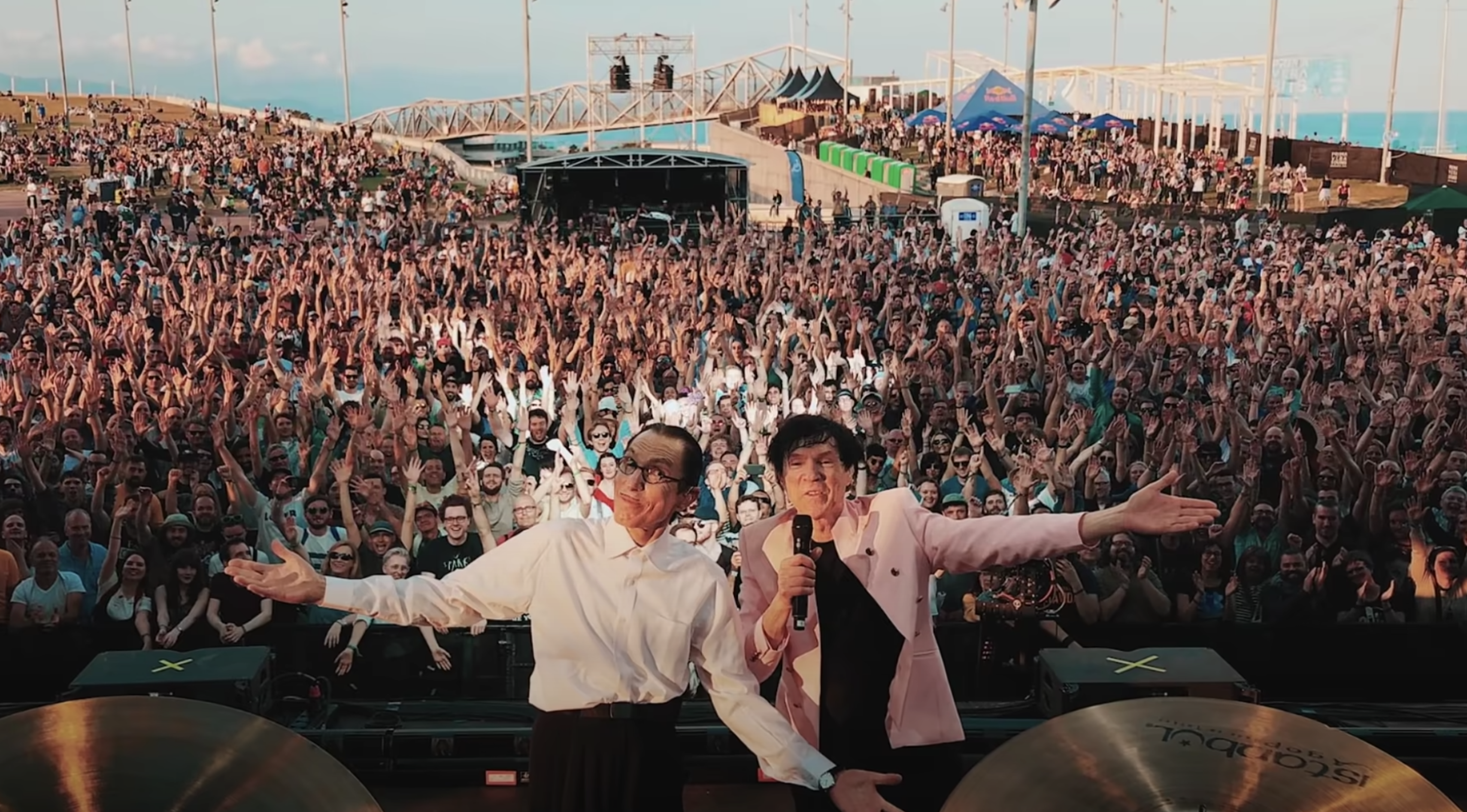It’s the story of a wacky band from the seventies that overcame the odds: “THE SPARKS BROTHERS”
In the seventies Ron and Russell Mael fast attracted a fan base thanks to their decidedly unorthodox musical act, the Sparks. Despite changing demographics, shifting musical tastes and their unending oddity, the brothers have managed to enthrall fans well into the 21st century. Director Edgar Wright (“Shaun of the Dead,” “Baby Driver”) is just one among those many famous fans to wax nostalgic about the band, with a new documentary about the siblings he called “The Sparks Brothers.”
As brothers and aspiring musicians, their story was difficult even at the start. Their father died when they were young, leaving them behind with questions that had no answers, but with a fire in their belly to scream into the void with music. Russell Mael, with his good looks and infectious energy, was a natural as the frontman for their early musical iterations. The more mercurial Ron tried a different tack, opting to confound expectations time and again with his unique dress and pencil moustache—which he teased was neither Hitler-esque nor Chaplin-esque, though anyone with two eyes might beg to differ (unsurprisingly, Weird Al Yankovic is a fan, and he offers that the Sparks gave “comedy” musicians like himself permission to be taken seriously as artists).
Wright uses black-and-white interviews for contemporary talking heads, including Flea, Jane Wiedlin and Beck to praise the Sparks. Contemporaries of the brothers from the punk scene in both the United States and United Kingdom speak highly of them as well. Predictably, England provided a captive audience for the Sparks (which were then called Half-Nelson), what with its exports like the Sex Pistols. In one of the more intriguing episodes of “The Sparks Brothers,” the band was essentially kicked out of England on their first go-round before making a successful second try a few years later.
In their second go at Blighy they caught fire, earning them legions of fans. But just when it seemed they were on the right track, Ron and Russell decided they wanted to return home to California. The English members of their backing band were given the boot, and one, talking to Wright’s camera today, shrugs it off as if to say, “well, that’s it then.”
If you had never heard of the Sparks before, you’re not alone, but Wright effectively makes the case that their electronic and experimental methodologies all but gave birth to the synthesizer sound of the eighties. But by the nineties, music had changed, grunge was in, and the sound of eighties excess was out. The Sparks pressed on, their devoted fans in tow.
At two hours and twenty minutes “The Sparks Brothers” is more rather long cinematic love letter than documentary, but there’s something to be said for the passion and genuine adoration that Wright and his subjects have for the Mael brothers and their hard-to-classify sound. Wright is betting that his reputation for stylish filmmaking will ingratiate new fans to the band, and he may likely succeed even if his new film could have used some trimming, especially in the third part.
Fans of the Sparks will likely have no problem with the running time, and music aficionados of all stripes could do worse than spending quality time with Russell and Ron, now much older but clearly still up for any challenge to continue to confound music critics.
“The Sparks Brothers” opened on Friday.
news via inbox
Nulla turp dis cursus. Integer liberos euismod pretium faucibua



